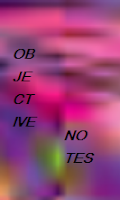A Set of 26 Objective Questions & Answers
b. Calcutta-born
Victorian novelist is W M Thackeray; Bombay-born Victorian novelist is Kipling.
d. The leaders of the Oxford Movement (Tractarianism) are British theologians John Keble, John Henry Cardinal Newman, and Edward Bouverie
Pusey.
e. The picture of Dorian Gray is written by Oscar Wilde. It is a novel whose
hero is an embodiment of the aesthetic way of life.
f. In Memorium by Tennyson is written in memory of his
friend Henry Hallam, his college friend who died at Viena in 1833.
g. Pre-raphaelite Britherhood / Pre Raphaelite poets: Daute Gabrical
Rossetli, Ruskin, Swinsburne, William Morris, Christina Rossetti.
h. William Morris is a late Victorian poet.
i. The real name of George Eliot is Mary Ann Evans.
j. D G Rossette started
a journal named The Germ(1850). It wsa the spokeman of Pre-Raphaetite
brotherhood.It continued for only four issues [from jan 1,1850 – April 30, 1850].
k. Two literary journals in the 19th century-The Germ (1850) WAS EDIED
By W M Rosetti and Oxford and Cambridge.
l. All men Strive and who succeeds – The Last Ride
Together by Browning.
m. He had a memory like the British Museum library –
This is said by Chesterton about Robert Browning.
n. Thyris and The Scholar Gipsy are written in the memory of Clough.
o. Mathew Arnold wrote West Minster Abbey on the death of Dean Stanley.
p. Nicholas Nickle (1838) is a novel written by Charles Dickens.
q. Charles Dickens A tale of Two Cities can be considered a historical novel.
r. The Accession of Queen Victoria was in
1837.
s. The origin of species was written in 1859.
t. Poetry is a criticism of life it must answer the
questions as to ‘How to live?’ – said by Mathew Arnold.
u. Keble initiated the Oxford movement.
v. Arnold called
Chaaucer as the father of English poetry.
w. Fra Lippo Lippi, Andrea del Sarto, Rabbi Bon Ezra are Browning 's great
dramatic monologues.
x. The chief women novelists of the Victorian era are the Bronte sisters,
Elizabeth Cleghorn Caskell, George Eliot, Mrs. Henry Wood and Mrs. Oliphant.
y. Poetry is a criticism of life – is told by Mathew Arnold.
z. The general characters of George Eliot are novels may be described in the
author’s own term, as psychological realism.



Excellent! I like it from the bottom of my heart.
ReplyDeletesohrab and rustam is by arnold
ReplyDeletesir please provide an analysis of 'the scholar gipsy'.i am really facing a great difficulty in comprehending with the poem.
ReplyDelete